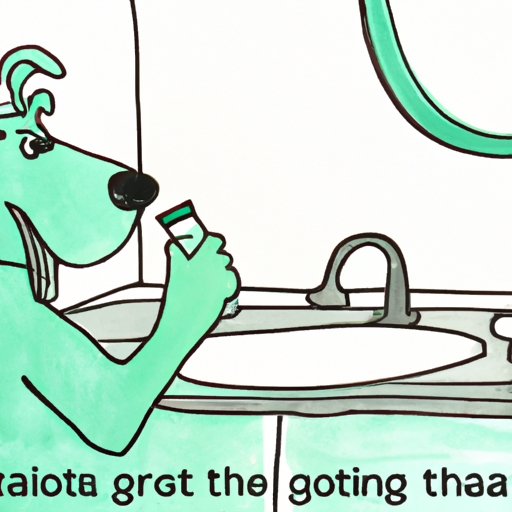Introduction
Ah, the joy of dog ownership! The wagging tails, the eager eyes, the…not so fresh breath? That’s right, your fluffy friend’s oral hygiene is just as important as your own. But fret not, dear caregiver, we have you covered. Here is a comprehensive guide to help you combat your dog’s bad breath.
1. Understanding The Importance of Oral Hygiene in Dogs
Just like in humans, poor oral hygiene in dogs can lead to a host of health problems, ranging from gum disease and tooth loss, to more serious conditions like heart disease. The culprit? Bacteria. This pesky micro-organism can increase exponentially if not effectively controlled, causing bad breath and potentially compromising your dog’s health.
- Gum disease: Bacteria can lead to plaque and tartar buildup on your dog’s teeth, causing inflammation of the gums (gingivitis) which can progress to periodontitis if left untreated.
- Tooth loss: As periodontitis advances, it can lead to tooth loss.
- Heart disease: The bacteria from your dog’s mouth can enter the bloodstream and affect the heart.
| Potential Problem | Caused by | Possible Outcome |
|---|---|---|
| Gum Disease | Bacteria | Inflammation |
| Tooth Loss | Bacteria | Tooth decay |
| Heart Disease | Bacteria | Health problems |
2. Daily Brushing: The First Line of Defense
Brushing your dog’s teeth daily might sound like a daunting task, but it is the most effective way to keep that bad breath at bay. Here’s how:
- Choose a toothbrush suitable for your dog’s size. Dog toothbrushes are softer and smaller than human ones, and are designed to better fit a dog’s mouth.
- Use a toothpaste specifically made for dogs. Human toothpaste can upset your dog’s stomach.
- Start slow and make the experience positive. Reward your dog with treats or playtime after each brushing session.
3. Diet: The Invisible Factor
What your dog eats plays a crucial role in maintaining good oral health. Here are some tips:
- Dry food: Dry kibble is better for your dog’s teeth than wet food, as it reduces plaque buildup.
- Dental treats and chews: These are specifically designed to help clean your dog’s teeth and freshen their breath.
- Raw bones: Chewing on raw bones can help clean your dog’s teeth naturally. However, always supervise your dog while they’re chewing to prevent choking or tooth fractures.
4. Professional Dental Cleanings
Even with regular brushing and a proper diet, your canine companion may still need professional dental cleanings. Your vet can perform a thorough cleaning and check for any potential oral health issues. This is especially important as your dog ages and becomes more susceptible to dental problems.
5. Regular Vet Check-Ups
Regular vet visits can help catch any potential issues early and keep your dog’s mouth healthy. Your vet can provide advice tailored to your dog’s specific needs and circumstances, ensuring optimal oral health.
FAQs
Q: How often should I brush my dog’s teeth?
A: Ideally, you should brush your dog’s teeth daily.
Q: Can I use human toothpaste for my dog?
A: No, human toothpaste can upset your dog’s stomach. Use toothpaste specifically made for dogs.
Q: How often should I take my dog for professional dental cleanings?
A: This depends on your dog’s age, diet, and oral health. Your vet can provide the best advice.
Q: Can I just give my dog dental treats instead of brushing their teeth?
A: Dental treats can help, but they are not a substitute for daily brushing.
Remember, a little effort goes a long way in ensuring your furry friend’s oral health. So, roll up your sleeves and let’s get brushing!



